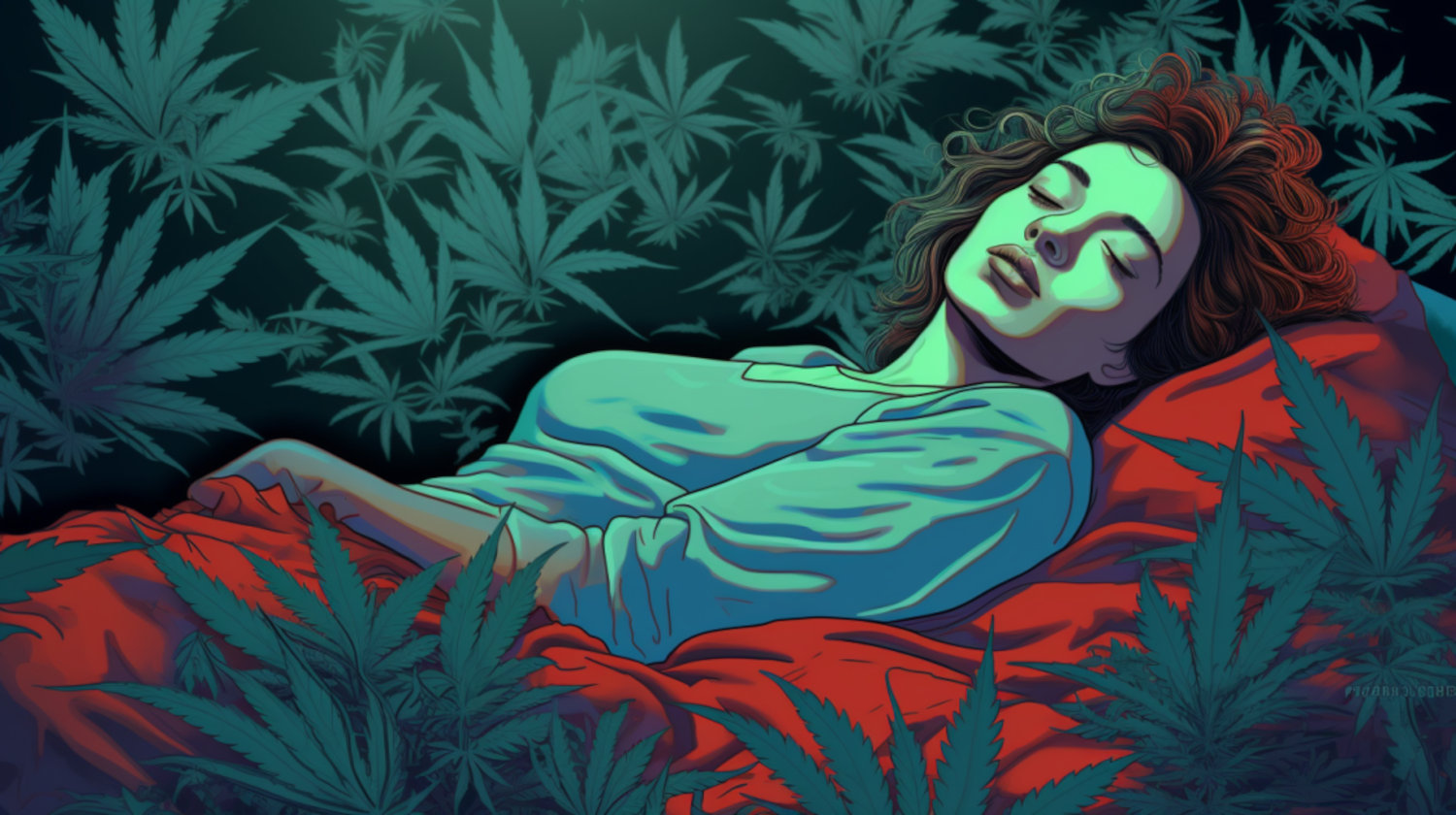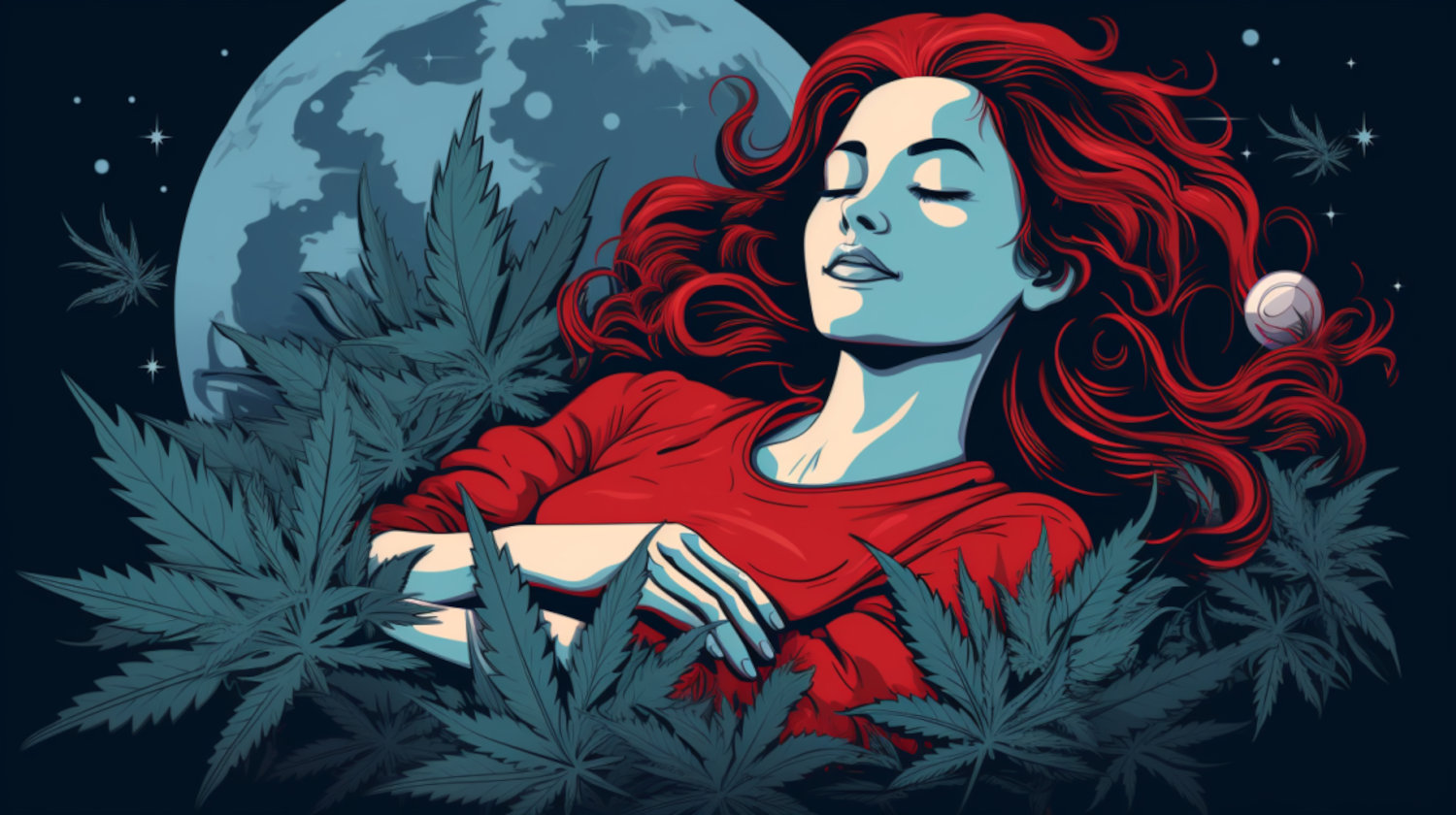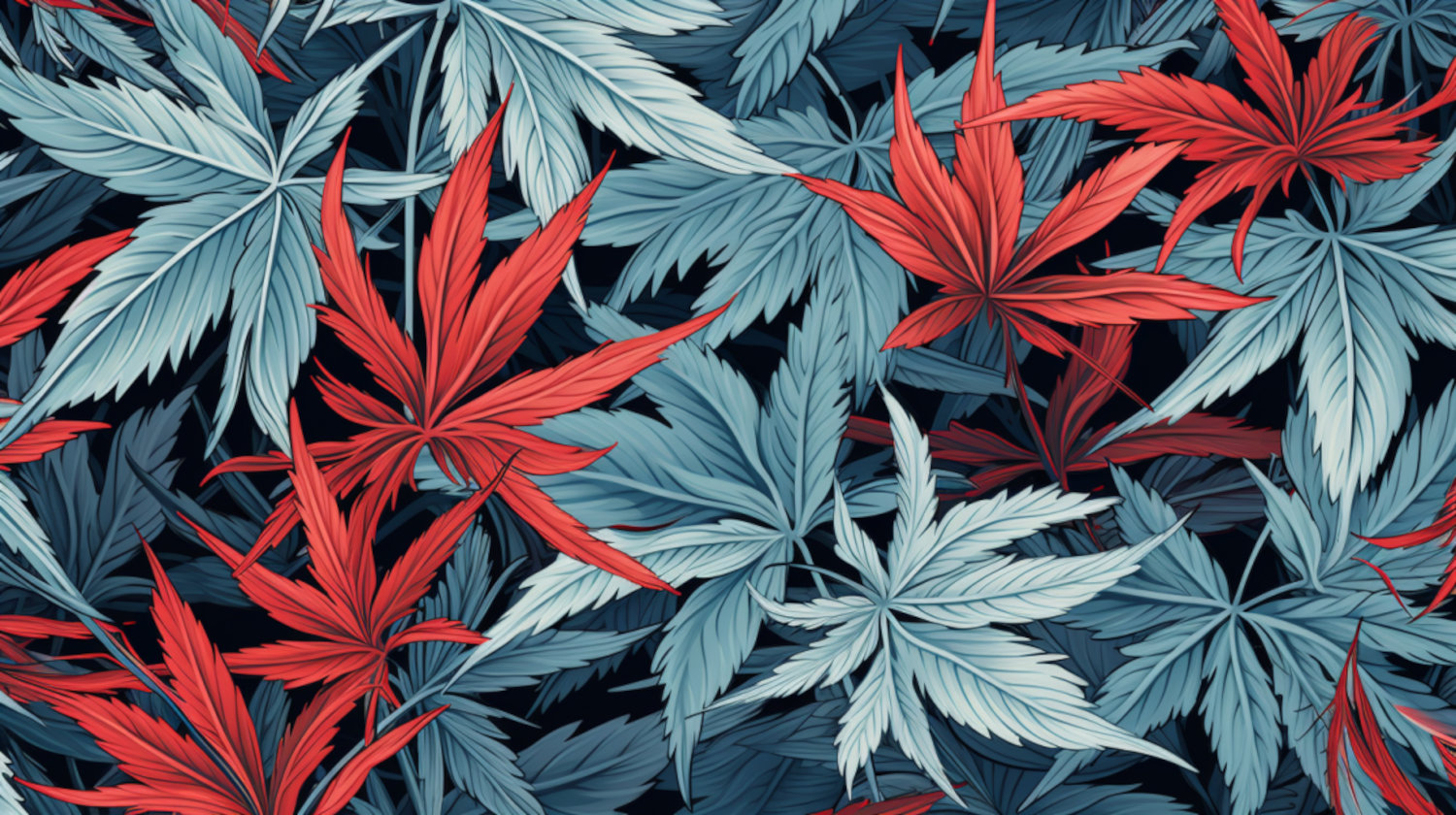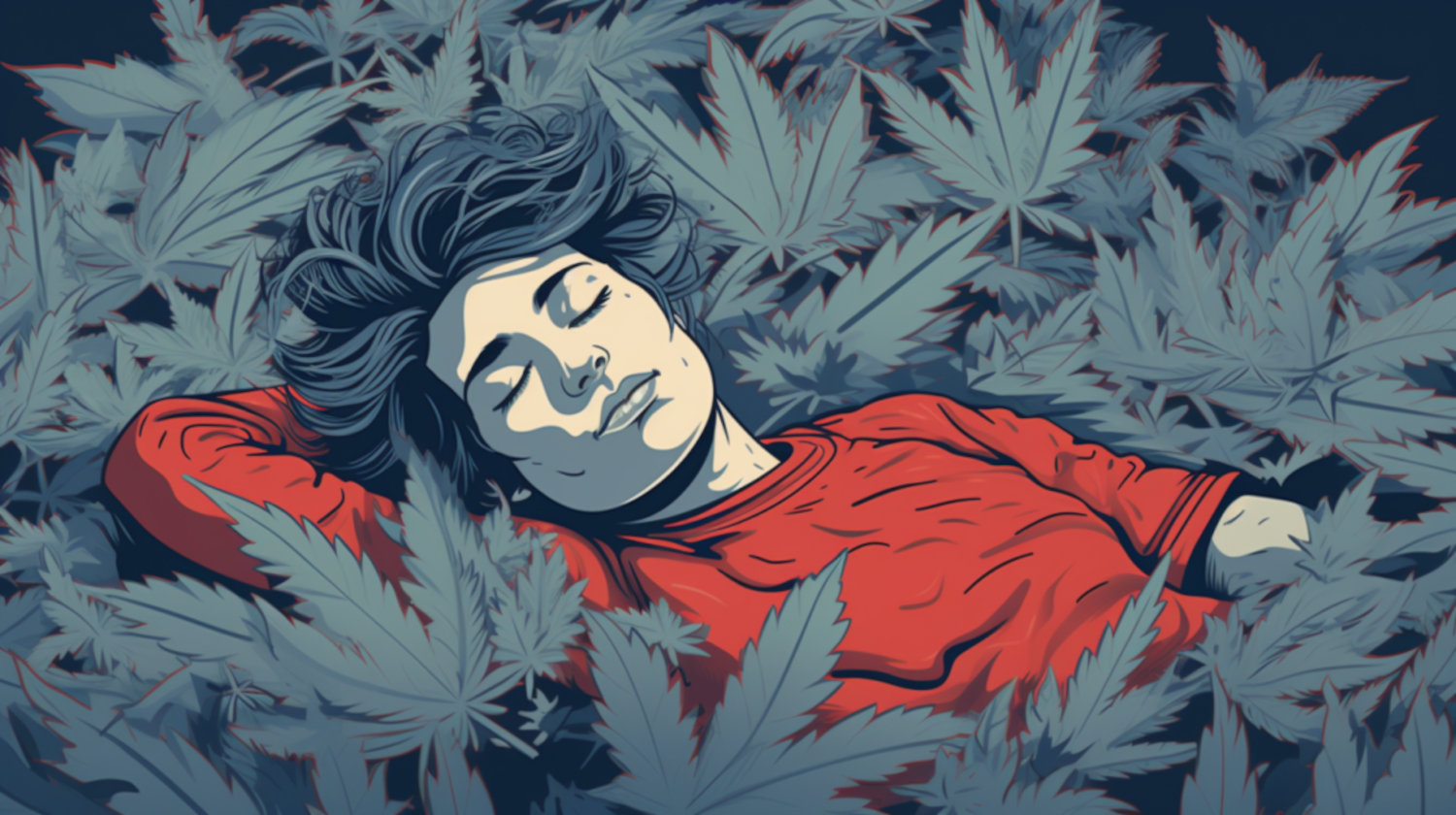As more and more people turn to cannabis to help them sleep, some are left in a precarious position where they can't sleep without weed.
It’s important to understand what can happen if someone stops their cannabis use and what you can do if you are having trouble sleeping without weed.
How Does Weed Affect Sleep?
Weed and sleep is a complicated subject. There’s a significant need for more research to be done in order to understand how cannabis affects sleep.
There are likely a few different ways that cannabis can impact the body and affect sleep. One study found that it’s likely cannabis use can change an individual’s circadian rhythms. These changes aren’t always positive, and they may have a negative impact on someone’s sleep.1
However, some people turn to cannabis for insomnia treatment. They report that cannabis helps them fall asleep and stay asleep for more extended periods of time than managing on their own.
While it is possible that cannabis could play a role in impacting sleep cycles and circadian rhythms, it’s difficult to make any definitive claims at this point. If you’re concerned about how cannabis could impact your sleep, don’t hesitate to reach out to your doctor and have an open conversation about your concerns.
Many of the current studies have examined the effects of isolated cannabinoids like THC or CBD on sleep patterns, but the combination of compounds within cannabis is important as well. Individuals often use products with high THC because they believe them to be more “potent” or “powerful” than products with high CBD and low THC (that might be just as helpful, if not more so).2 Other factors that may influence why a cannabis strain may induce a more sedating effect are the presence of terpenes like myrcene and linalool.3,4
Cannabis Withdrawal: Why You Can't Sleep Without Weed

Individuals who are frequent cannabis users and have recently stopped use may be wondering if there are any cannabis withdrawal symptoms to watch out for.
Some symptoms of cannabis withdrawal include:5
- Difficulty sleeping
- Shakiness
- Weight loss
- Anger
- Irritability
- Vivid dreams
- Depression
- Sweating
- Chills
- Headache
A very common side effect of discontinuing cannabis use is a decrease in total sleep time. This typically only occurs within the withdrawal period, and sleep habits usually return to a healthy state.6
The length of cannabis withdrawal symptoms will depend on a variety of factors, including how long the individual has been using, the dosage that they frequently take, their individual biology, and their metabolism. To help speed up cannabis detox, consider exercising and drinking lots of water. These can be effective ways to encourage the body to cycle out any remaining cannabis.
If you are considering starting the detox process, it’s important to be aware of the signs and symptoms. Don’t hesitate to reach out to a doctor if you have concerns; they'll be able to inform you on how to make the right decisions for your health.
I Stopped Smoking Weed and Now I Can't Sleep. Why?
If you can’t sleep without weed, you may be wondering why and how to stop the cycle. Remember that everyone has a unique body and biology, so what works for one person might not work for another. It’s essential to keep this in mind when it comes to your own health and wellness.
Experiencing vivid dreams after quitting smoking cannabis is very common.5 If the vivid dreams are negative, such as a nightmare, they may lead to waking up and not feeling rested. If dreams are impacting your sleep, consider contacting a professional and getting specialized advice.
Likely, the most significant impact of cannabis on sleep is that chronic cannabis use can affect sleep architecture. Not only can it produce a tolerance, where higher doses are required to get the same benefits, but it’s also possible that cannabis could shorten or lengthen specific periods of the sleep cycle. This change in sleep patterns could potentially be a reason why individuals struggle to fall asleep after stopping cannabis use.
Some research has also found that cannabis specifically changed specific periods of sleep, including non-rapid eye movement sleep. Other studies have indicated cannabis as a “zeitgeber,” defined as an environmental variable that induces the circadian function. When this variable is removed, it may become harder to induce the circadian function and fall asleep more easily. Changes in endocannabinoid levels like anandamide and 2-AG may play a role in circadian function as well.7
How to Sleep Without Weed

There are a variety of options available for individuals who want to learn to fall asleep without weed.
Melatonin: Melatonin is a chemical that’s naturally created by the brain. When individuals have a healthy internal clock, their brains begin creating melatonin when exposed to the dark, typically centered around their body’s natural circadian rhythms. While melatonin is produced naturally by the brain, it can be purchased in pill or tincture form. Melatonin can be a natural way to encourage the body to get some sleep. If you’re on any other medications, consider reaching out to your doctor and asking if adding melatonin could be the right choice.
Meditation: The key to encouraging the body to fall asleep is often inducing relaxation. Finding ways to relax can be extremely beneficial and a signal to the body that it’s time to wind down. Meditation is a great way to relax and can easily be done at home by learning various techniques or watching videos on the topic. Through meditation, you can take time for yourself and focus on your main goal: relaxing to the point of being able to sleep. For example, you can do something as simple as the 4-7-8 breathing exercise, where you inhale through the nose for four counts, hold your breath for seven counts, and then exhale through the mouth for eight counts.
Exercise: Incorporating exercise into your daily routine can be an exceptional way to encourage your body to sleep naturally and avoid taking supplements.
Reflection: Struggling to get sleep can be extremely overwhelming and frustrating. Reflecting on various lifestyle factors, such as caffeine intake, may be influencing your ability to sleep. Keeping a journal tracking your lifestyle changes and sleep can be extremely beneficial in seeing what may be working or not.
Decrease light: If you are struggling with falling asleep, you can try blackout curtains or turning off any lights that may be on in the room. In addition, avoid using your phone right before going to sleep, as the increased light exposure can impair melatonin production.
References
- Edwards D, Filbey FM. Are Sweet Dreams Made of These? Understanding the Relationship Between Sleep and Cannabis Use. Cannabis Cannabinoid Res. 2021;6(6):462-473. doi:10.1089/can.2020.0174 ↩︎
- Winiger EA, Hitchcock LN, Bryan AD, Cinnamon Bidwell L. Cannabis use and sleep: Expectations, outcomes, and the role of age. Addict Behav. 2021;112:106642. doi:10.1016/j.addbeh.2020.106642 ↩︎
- Surendran S, Qassadi F, Surendran G, Lilley D, Heinrich M. Myrcene—What Are the Potential Health Benefits of This Flavouring and Aroma Agent? Frontiers in Nutrition. 2021;8. doi:https://doi.org/10.3389/fnut.2021.699666 ↩︎
- Cui J, Li M, Wei Y, et al. Inhalation Aromatherapy via Brain-Targeted Nasal Delivery: Natural Volatiles or Essential Oils on Mood Disorders. Frontiers in Pharmacology. 2022;13. doi:https://doi.org/10.3389/fphar.2022.860043 ↩︎
- Lee D, Schroeder JR, Karschner EL, et al. Cannabis withdrawal in chronic, frequent cannabis smokers during sustained abstinence within a closed residential environment. Am J Addict. 2014;23(3):234-242. doi:10.1111/j.1521-0391.2014.12088.x ↩︎
- Gates P, Albertella L, Copeland J. Cannabis Withdrawal and Sleep: A Systematic Review of Human Studies. Substance Abuse. 2016;37(1):255-269. doi:10.1080/08897077.2015.1023484 ↩︎
- Kesner AJ, Lovinger DM. Cannabinoids, Endocannabinoids and Sleep. Frontiers in Molecular Neuroscience. 2020;13. doi:https://doi.org/10.3389/fnmol.2020.00125 ↩︎
The information in this article and any included images or charts are for educational purposes only. This information is neither a substitute for, nor does it replace, professional legal advice or medical advice, diagnosis, or treatment. If you have any concerns or questions about laws, regulations, or your health, you should always consult with an attorney, physician or other licensed professional.




